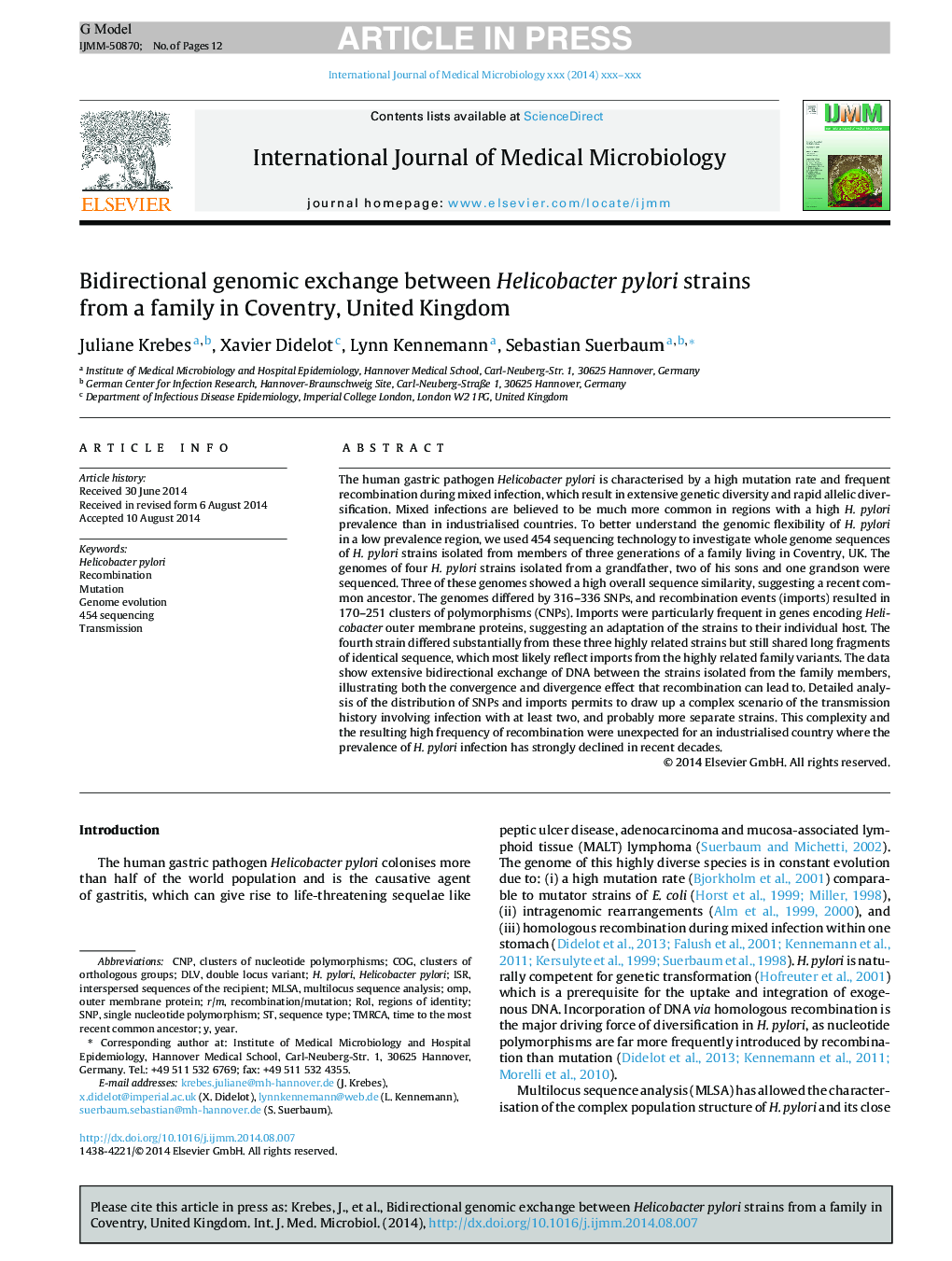| Article ID | Journal | Published Year | Pages | File Type |
|---|---|---|---|---|
| 8385523 | International Journal of Medical Microbiology | 2014 | 12 Pages |
Abstract
The human gastric pathogen Helicobacter pylori is characterised by a high mutation rate and frequent recombination during mixed infection, which result in extensive genetic diversity and rapid allelic diversification. Mixed infections are believed to be much more common in regions with a high H. pylori prevalence than in industrialised countries. To better understand the genomic flexibility of H. pylori in a low prevalence region, we used 454 sequencing technology to investigate whole genome sequences of H. pylori strains isolated from members of three generations of a family living in Coventry, UK. The genomes of four H. pylori strains isolated from a grandfather, two of his sons and one grandson were sequenced. Three of these genomes showed a high overall sequence similarity, suggesting a recent common ancestor. The genomes differed by 316-336 SNPs, and recombination events (imports) resulted in 170-251 clusters of polymorphisms (CNPs). Imports were particularly frequent in genes encoding Helicobacter outer membrane proteins, suggesting an adaptation of the strains to their individual host. The fourth strain differed substantially from these three highly related strains but still shared long fragments of identical sequence, which most likely reflect imports from the highly related family variants. The data show extensive bidirectional exchange of DNA between the strains isolated from the family members, illustrating both the convergence and divergence effect that recombination can lead to. Detailed analysis of the distribution of SNPs and imports permits to draw up a complex scenario of the transmission history involving infection with at least two, and probably more separate strains. This complexity and the resulting high frequency of recombination were unexpected for an industrialised country where the prevalence of H. pylori infection has strongly declined in recent decades.
Keywords
Related Topics
Life Sciences
Biochemistry, Genetics and Molecular Biology
Biochemistry, Genetics and Molecular Biology (General)
Authors
Juliane Krebes, Xavier Didelot, Lynn Kennemann, Sebastian Suerbaum,
